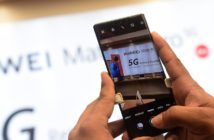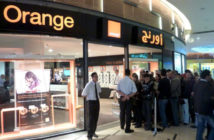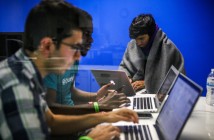Christinne Muschi for The New York Times
A prototype tablet is assembled at a DataWind site in Montreal. The company’s plan to invigorate India’s electronics manufacturing by producing low-cost tablets for students has gone awry.By PAMPOSH RAINA, IAN AUSTEN and HEATHER TIMMONS
THE idea was, and still is, captivating: in 2011, the Indian government and two Indian-born tech entrepreneursunveiled a $50 tablet computer, to be built in India with Google’s free Android software. The government would buy the computers by the millions and give them to its schoolchildren.
Enthusiasts saw the plan as a way to bring modern touch-screen computing to some of the world’s poorest people while seeding a technology manufacturing industry in India. Legions of customers placed advance orders for a commercial version of the tablet, thrilled at the prospect of owning tangible proof that India was a leader in “frugal innovation.”
Even the secretary general of the United Nations, Ban Ki-moon, lavished praise on the audacious project, called Aakash, the Hindi word for sky. “India is a superpower on the information superhighway,” Mr. Ki-moon said at a ceremony in November at the United Nations headquarters in New York.
Stoking expectations was Suneet Singh Tuli, the charismatic C.E.O. of the small London-based company that won the bid. “I am creating a product at a lower price than anyone else in the world with the hope that it impacts people’s lives and I make money out of it,” he said in a recent interview.
But over the last few months, it has become increasingly evident that Mr. Tuli, 44, and his older brother, Raja Singh Tuli, 46, are unable to deliver on most of their ambitious promises.
The Tulis acknowledge that their company, DataWind, will not even come close to shipping the 100,000 tablets it has promised to India’s colleges and universities before its year-end deadline. Most of the 10,000 or so tablets delivered through early December were made in China, despite the company’s early pledge to manufacture in India. Financial statements filed with British regulators show that the company is deeply in the red.
And the project’s entire premise — that India can make a cheap tablet computer that will somehow make up for failures of the country’s crippled education system — is fundamentally flawed, according to some experts in education and manufacturing.
Leigh L. Linden, an assistant professor of economics and public affairs at the University of Texas at Austin who has studied the use of technology in schools in India and other developing countries, said that, at best, computers merely match the performance gains from far less costly projects that involve hiring additional teachers or teaching assistants. And in some cases, Professor Linden said, the introduction of computers can actually lower students’ test results.
“Based on the available research,” he said, “this would not be the most effective strategy for education in developing countries.”
The notion that India’s weak manufacturing sector can catch up to China in advanced computer hardware also strikes some experts as far-fetched. “China became the manufacturing center of the world, and India missed that boat,” said Surjit S. Bhalla, an economist and managing director of Oxus Investments.
So far, the Indian government is standing firmly behind the project.
“All pathbreaking ideas do look too ambitious when conceived,” the Ministry of Human Resource Development, which oversees the Aakash project, said in an e-mailed statement. Aakash is “an all-encompassing project,” not just the creation of a tablet computer, the ministry said. With it, the government plans to create “an entire manufacturing ecosystem” in India.
INTERVIEWS with DataWind executives, government officials, Chinese manufacturers, business partners and former and current employees paint a picture of a small family company that was overwhelmed by a complex project that even China’s cutthroat technology manufacturers would find challenging to execute at the price expected by the government.
Leading a tour last month of the company’s small touch-screen factory in downtown Montreal, Raja Tuli, DataWind’s co-chairman and chief technology officer, said he had initially opposed his brother’s desire to bid on the Aakash contract, and he expressed lingering regrets.
“We got stuck in it,” he said. “We’re doing our best.”
DataWind’s real goal, Mr. Tuli said, is to sell low-cost wireless Internet access for tablets in developing countries like India. He said DataWind’s proprietary data compression technology, which made its debut in Britain years ago with a device called the PocketSurfer, efficiently delivers Web pages over older, slower cellphone networks.
“Our biggest contribution is our software,” Mr. Tuli said. “The fact that we’re making the actual hardware is a sideline that we got into in the process. We never meant to do it, but here we are.”
For India’s government, the Aakash project was supposed to usher in a computer revolution.
Although India pioneered the information technology outsourcing business, and still does much of the computing work for many big companies, only a small portion of the population has access to computers or the Internet.
Others had tried to bring cheap computing to developing countries like India — most notably theOne Laptop Per Child project. Founded by Nicholas Negroponte of the Massachusetts Institute of Technology and backed by a host of Western technology companies, that effort aimed to bring $100 laptops to children around the world but faltered amid a host of technical, manufacturing and competitive challenges.
“This is our answer to M.I.T.’s $100 computer,” said Kapil Sibal, the minister of communications and information technology, when he announced the Aakash project in 2010.
Suneet Tuli, whose family emigrated from India to Canada when he was a boy, certainly bought into that vision. Just as the huge drop in the price of mobile calling prompted a communications revolution in India, a cheap tablet could transform India’s classrooms and eventually all of the country’s poor, he said in an interview in October 2011.
In India, “there are one billion people left out,” he said, “and the way to include them is lower the price.”
BUT DataWind was in over its head from the start.
The government’s specifications were challenging, and none of India’s information technology giants, like HCL or Wipro, competed for the contract. DataWind made the lowest bid, promising to supply the tablets for 2,276 rupees, including delivery — about $50 at exchange rates at the time, and about $40 now.
In a recent interview, Suneet Tuli said DataWind figured that it could cut costs by improving on standard industry designs and by making touch screens itself, in Canada, at a lower price than it could buy them in China.
In a fateful decision, Mr. Tuli also promised to build the tablet in India, even though the country’s manufacturers had no real experience in building such hardware. While not required by the government, the pledge added to the patriotic fervor surrounding the project and generated publicity for DataWind’s plan to sell more expensive commercial tablets and $2-a-month wireless Internet service to the public.
Rather than build its own plants, DataWind sought out Indian partners, starting with Quad Electronic, from Andhra Pradesh, which had made cash registers, electronic typewriters and printers but never tablets.
Within months, though, the two had parted ways.
According to Suneet Tuli, the problems started when the university overseeing the project rejected the early tablets and demanded improvements. The relationship collapsed after DataWind discovered that Quad planned to produce a rival tablet, he said.
But Raminder Singh Soin, Quad’s managing director, said DataWind’s product “was not good enough.” “Many things were missing in the Aakash tablet,” he said in a phone interview this month, noting that its microprocessor could not support the tablet’s advertised features.
Mr. Soin said DataWind never paid for the tablets Quad did produce, or for the components Quad bought to build an additional 30,000 units. He estimates that the failed partnership cost him 150 million rupees, or about $3 million. Suneet Tuli said DataWind didn’t owe Quad any money.
COMPOUNDING DataWind’s problems, the company started taking orders for the commercial version of its tablet, the UbiSlate, just a week after unveiling the Aakash tablet. Within six weeks, it had 300,000 orders, Suneet Tuli said in an interview in early 2012. Last month, he said, orders for the UbiSlate tablets had reached about four million.
Yet DataWind still lacks the manufacturing, marketing and customer service capacity to handle even a substantial fraction of those orders. A result has been a wave of customer fury.
Edwin Richard Toppo, 25, a human resources professional in Delhi, placed an order in August for an UbiSlate. Weeks after he received the tablet, he said in a phone interview, its two USB ports stopped working. Then the slot for a SIM card went dead, and now the touch screen is unresponsive, he said.
“It’s like a dummy,” Mr. Toppo said, adding that several dozen calls to DataWind customer support went unanswered.
In a recent interview, Suneet Tuli acknowledged that the company has struggled. “Unfortunately, the scale of everything here has been beyond our imagination,” he said.
DataWind is trying to prioritize orders, he said, delivering about 2,500 tablets a day and offering refunds to people who don’t want to wait. Customers “will get a world-class product, I think, at a fraction of the price,” he added.
To help clear the huge backlog of orders, DataWind said it had signed up four new Indian partners to help make the tablets.
Still, the company won’t meet the Dec. 31 deadline to deliver 100,000 tablets to the Indian government. It recently received an extension until March 31, and Raja Tuli said he expects DataWind to fulfill the government contract by that time.
In an attempt to meet its commitments, the companymoved production to China in the fall. At least three Chinese companies have been manufacturing an improved tablet, known as Aakash-2, for DataWind, and shipped thousands to India, according to interviews with Chinese manufacturers and documents reviewed by The New York Times.
Officials at the Chinese companies, who said they make as little as $1 in profit on each tablet, expressed doubts that India would ever be able to compete in electronics manufacturing.
“DataWind’s tablets can be made in Shenzhen, but not in India, because Shenzhen has a fully developed industry chain,” said a project manager with Kalong Technology, one of the companies, who spoke on the condition that his full name not be used, because he wanted to avoid media attention. “It’s just like, if you want to open a bakery, you need to know where to get the best flour both near you and at a good price.”
A recent visit to DataWind’s three-story Indian plant in the Amritsar neighborhood known as Ghee Mandi showed just how far the company has to go.
On the ground floor, rows of brown shipping boxes were piled atop one another, some printed with “Easydy,” the name of a Shenzhen tablet manufacturing company. Ibadat Singh, DataWind’s vice president for operations, said DataWind was not buying finished tablets from China, but just recycling boxes that happened to come from there. “Why use new boxes?” he said.
Two floors up, 16 men at a rectangular table were programming tablets and adding standard applications, Mr. Singh said. One man was working on an opened tablet with a big green screwdriver. Others were soldering wires or testing units. One man diligently wrapped tablets in Bubble Wrap and packed them into white boxes.
The factory makes about 1,000 units a day, Mr. Singh said. Each tablet takes five minutes to assemble and two to program. It’s so easy, he told a reporter, “even you can do it.”
DURING the November interview in Montreal, however, Raja Tuli described the difficulties of manufacturing in India, citing issues like prolonged border delays and poor infrastructure.
“Listen, it’s obviously easier in China just because the whole infrastructure is set up, capital is so much cheaper,” he said. “In India, it can be done but the process is longer.”
He declined to say whether DataWind would bid on future Aakash supply contracts from the government. But he said the company would not abandon its plans to build and sell inexpensive tablets in India.
“We’re not going to give up because of these little issues,” he said. “We’re committed to it. Always in life, it’s tougher than you think it was going to be.”
Pamposh Raina reported from New Delhi and Amritsar, India, Ian Austen from Montreal and Heather Timmons from New Delhi. Mia Li contributed reporting from Beijing.







